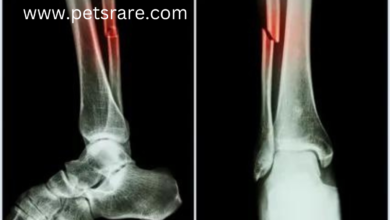Skunk Allergy: Recognition and Management

Skunk Allergy: Recognition and Management
Skunk allergies, while less common than other animal allergies, can significantly affect quality of life. Understanding the symptoms, causes, and management strategies is critical for affected individuals.
Identifying Skunk Allergies

Skunk allergy usually manifests as a reaction to proteins found in skunk saliva, urine, and dander. Symptoms can range from mild to severe.
Common Allergy Symptoms:
- Sneezing and runny nose
- Itchy, watery eyes
- Skin rashes or hives
*Coughing and wheezing
Difficulty breathing (in severe cases) - Swelling of the face, lips or tongue
If you suspect a skunk allergy, it is important to consult an allergist for a proper diagnosis. They may do skin prick tests or blood tests to confirm allergies.
Causes of Skunk Allergy

The exact cause of skunk allergy is unknown, but it is thought to be an overreaction of the immune system to certain proteins in skunk secretions. People with a history of allergies or asthma may be more prone to developing skunk allergies.
Management of Skunk Allergy
Effective management of skunk allergy involves a combination of avoidance strategies and medical treatment.
Escape Strategy:

- ** Exposure Limits: ** Avoid areas with skunk activity.
- Home Security: Seal entry points to prevent skunks from entering your home.
- Pet Care: If your pet encounters a skunk, avoid direct contact with the sprayed area.
- Clothing: Wash clothing immediately after exposure to skunk spray.
Medical Treatment:
- Antihistamines: Over-the-counter antihistamines can help relieve mild allergy symptoms.
- Decongestant: Nasal decongestants can relieve congestion.
- Corticosteroids: For more severe symptoms, prescription corticosteroids may be necessary.
- Allergy Shots: Immunotherapy (allergy shots) can be effective in reducing allergy sensitivity over time.
Allergy Relief Tips
| Tip | Advantages |
|---|---|
| Use a HEPA air purifier Removes allergens from indoor air | |
| Bathe and change clothes after outdoor activities Removes skunk allergens from the body | |
| Keep windows and doors closed Prevents entry of skunk odors and allergens | |
| Consider professional cleaning of skunk-infested areas. Removes allergens from carpets and furniture |
Frequently Asked Questions About Skunk Allergy

Q: Can I be allergic to fur later in life?
- A: Yes, it is possible to develop allergies at any age.
Q: How long do skunk allergy symptoms last? - A: The duration of symptoms may vary depending on the severity of the allergy.
Q: Are there any home remedies for skunk allergies? - A: Although some home remedies may provide temporary relief, consultation with a healthcare professional is recommended.
Result
Skunk allergies can be a nuisance, but with proper management, it is possible to minimize their impact on daily life. By understanding the symptoms, causes and treatment options, individuals can effectively manage their allergies and enjoy outdoor activities without fear.
Disclaimer: This article is for informational purposes only and does not constitute medical advice. Always consult a healthcare professional for allergy diagnosis and treatment.
[picture of a skunk]
[picture of allergy symptoms]



